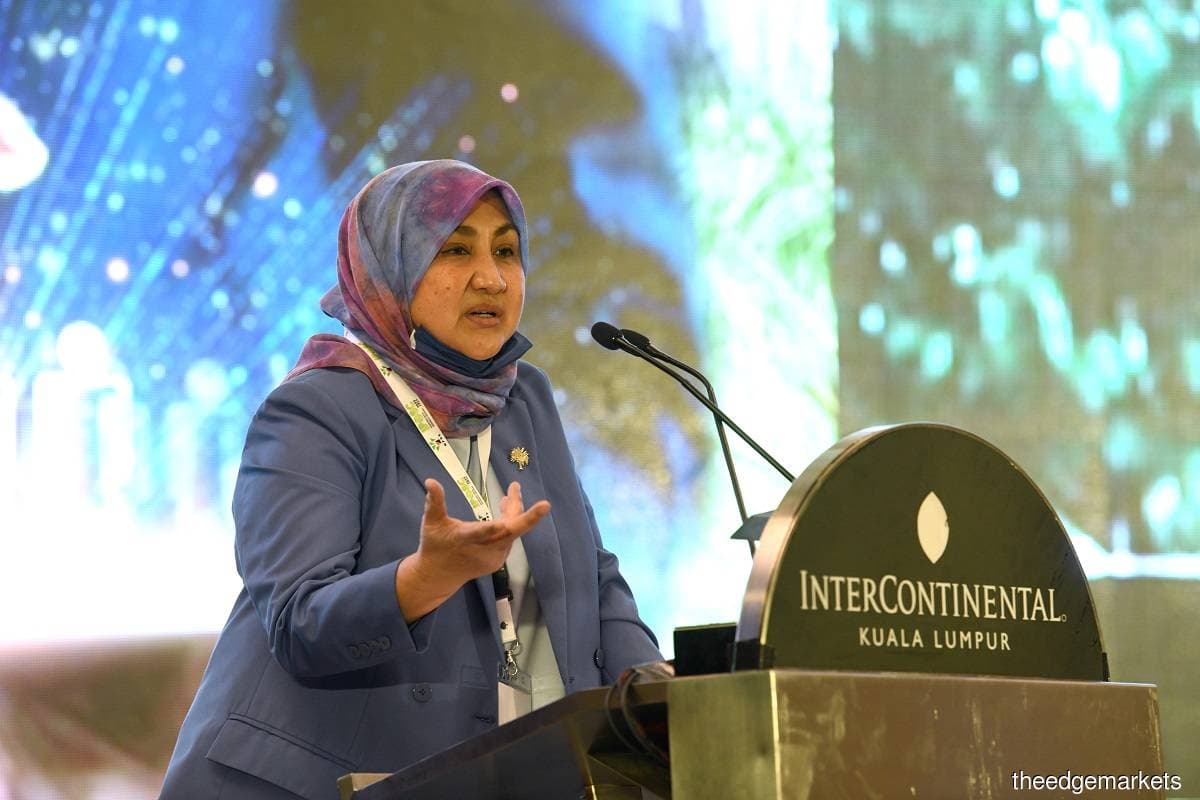
KUALA LUMPUR (Sept 13): The focus on sustainability issues does not seem to abate, as more challenges await the palm oil industry, according to Malaysian Palm Oil Council (MPOC) chief executive officer Wan Aishah Wan Hamid.
According to Wan Aishah, the palm oil industry has faced multiple sustainability challenges since the last few decades, from accusations of deforestation and the attrition of endangered wildlife to global warming, the sustainability of palm-based biofuels and the recent forced labour issues raised in the US.
Among the challenges for the palm oil industry is the emergence of new international climate change and deforestation-linked legislation that are potentially trade barriers.
These pieces of legislation are a result of countries seeking to mitigate the adverse effects of climate change by decarbonising, limiting global warming and achieving carbon neutrality or net zero by 2050, she said.
“A number of legislative developments have emerged, for example the European Green Deal in 2021 which include the Carbon Border Adjustment Mechanism, designed to impose levies on imported goods produced with high GHG (greenhouse gas) emissions,” said Wan Aishah in her speech during the International Palm Oil Sustainability Conference (IPOSC) 2022 on Tuesday (Sept 13).
In addition to this, Wan Aishah said the EU’s upcoming Regulation on Deforestation-Free Products as well as the US Forest Act Bill will penalise products whose supply chains are found with elements of deforestation.
“These policies and legislation could form an indirect trade barrier, as developing nations like Malaysia will incur a higher cost of compliance to gain market access. Palm oil will be one of the few commodities under scrutiny due to its perceived role in driving deforestation,” she said.
ESG to impact independent smallholders
Besides climate change and deforestation-linked legislation, Wan Aishah said, corporate investors, trust funds and financial institutions have begun to also impose environmental, social and governance (ESG) criteria in its investing and financing requirements.
Notwithstanding that, green financing is also now at the forefront of sustainable and responsible financing, as banking institutions are placing more emphasis to support business models and initiatives involving sustainable, carbon neutral and ESG-compliant investments.
“These developments will greatly impact the way companies operate, as corporations with better sustainability commitments and efforts will gain an edge over its corporate peers.
“However, industry stakeholders without sufficient financial, technical and manpower support will be adversely affected. This is especially true for independent smallholders in Malaysia, which have struggled to achieve 100% certification for sustainable palm oil certification schemes, and will now be burdened with these additional sustainability requirements,” Wan Aishah added.